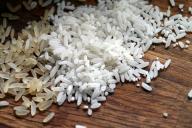Often the choice of food affects not only physical health, but also the emotional state.
Poor nutrition can cause fatigue, irritability and even depression.
Understanding the main foods that worsen your mood can help you avoid such consequences.

Sugar and Energy Swings
Eating large amounts of sugar causes blood glucose levels to rise sharply, creating a temporary surge of energy.
However, after this, the body faces the same sharp decrease. This process causes a feeling of fatigue and apathy.
In addition, regular consumption of sweets affects the production of the stress hormone cortisol.
Elevated cortisol levels impair a person's ability to cope with emotional stress, increasing anxiety.
Fatty and processed foods
Fast food, rich in saturated fats, not only slows down the digestive system, but also has a negative effect on the brain.
Research shows that regularly eating fatty foods can reduce the activity of serotonin, a hormone responsible for good mood.
Preservatives and trans fats contained in ready-made products disrupt metabolism. This causes not only physical heaviness, but also emotional decline.
Caffeine and its hidden consequences
Many people consider coffee to be a salvation from fatigue. But the abuse of this drink leads to the opposite effect. Excessive amounts of caffeine cause irritability, insomnia and anxiety.
In addition, constant stimulation of the nervous system leads to its exhaustion.
The body stops responding effectively to stressful situations, which worsens the overall emotional state.
Artificial additives
Sweeteners, colors, and flavors used in processed foods have negative effects on the brain.
For example, aspartame, found in many diet drinks, has been linked to increased anxiety levels.
Some artificial additives can block the production of dopamine, one of the main neurotransmitters responsible for the feeling of joy.
Alcohol and its deceptive effects
Although drinking alcohol is sometimes associated with relaxation, its effects on the body are the opposite.
Alcohol slows down the central nervous system, reduces serotonin levels and disrupts natural sleep cycles.
The gradual accumulation of toxins increases the feeling of depression.
Regular alcohol consumption causes addiction, which only worsens psychological problems.
Salt and fluid retention
A large amount of salt in the diet leads to fluid retention in the body.
This causes a feeling of heaviness and swelling, which can negatively affect self-esteem and mood.
Constant consumption of salty foods also disrupts the water-salt balance, which affects the nervous system.
This may manifest itself as irritability and problems concentrating.
High Glycemic Index Foods
White bread, baked goods, and refined flour pasta cause sharp spikes in blood sugar levels, similar to the effect of sweets.
The periodic feeling of hunger that occurs after eating such products causes the body to experience stress.
Switching to whole grain alternatives can help avoid mood swings and improve overall well-being.
Nutrient deficiencies
The low nutrient content of processed foods leads to deficiencies in B vitamins, magnesium and omega-3 fatty acids, all of which play a key role in maintaining mental health.
Deficiency of such substances reduces energy levels, impairs cognitive functions and can cause depressive states.
How to avoid the influence of harmful products
Improving your diet is one simple way to support emotional well-being.
Eliminating unhealthy foods and increasing the proportion of natural foods contributes to a stable mood.
Including fruits, vegetables, nuts and fish in your diet helps support the nervous system and fight stress.
The diet should be balanced. Overeating even healthy foods can have negative effects, so moderation is key.








